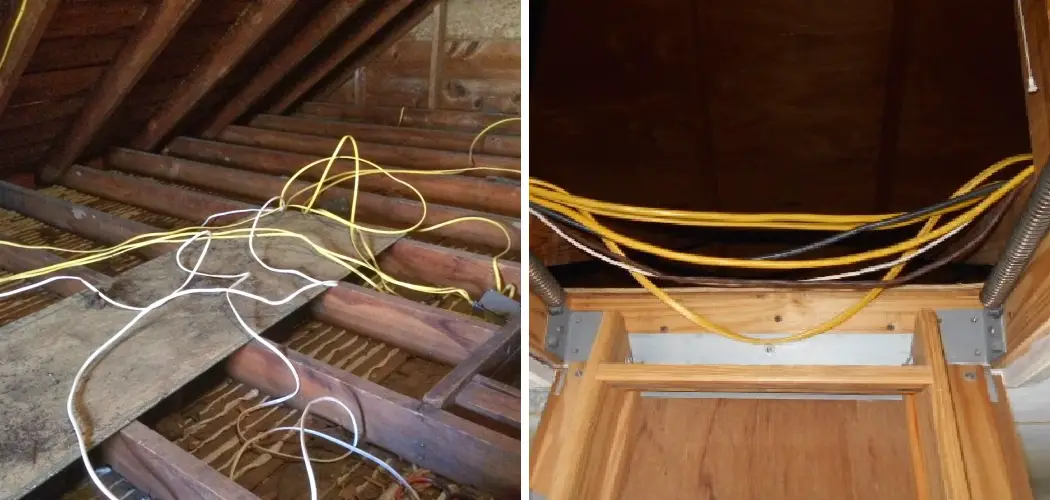Keeping your basement wiring in order is important for a variety of reasons. It ensures that you and your family are safe from potential electrical hazards due to outdated or broken wires, it can increase the efficiency of your home’s systems, and it can even help improve the overall value of your property. Cleaning up basement wiring is not always easy, but with a few tips and tricks, you can learn how to do it properly.
The advantages of cleaning up basement wiring are numerous. Firstly, it will ensure that the wires in your basement are safely and properly organized, eliminating any potential tripping hazards or fire risks. Secondly, it can help reduce energy costs by efficiently using power outlets and extension cords.
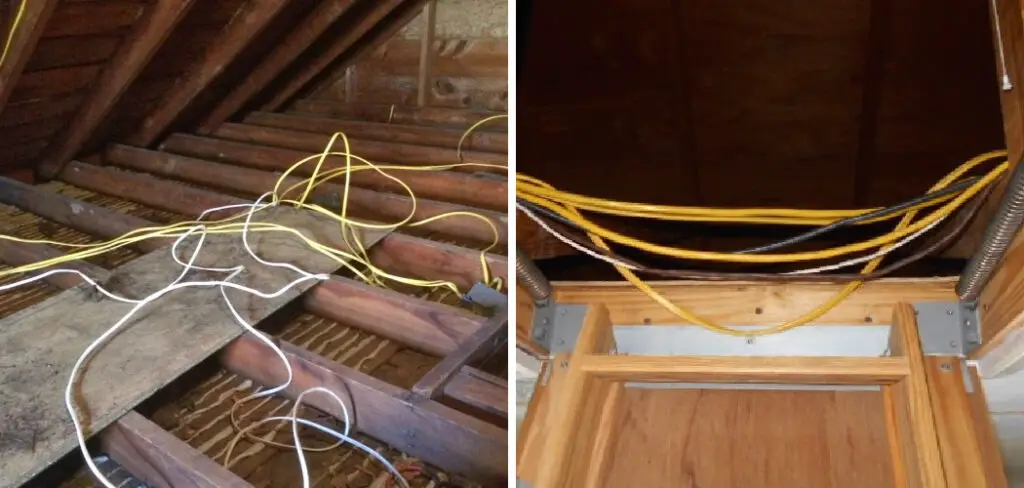
Finally, it can improve the overall look and feel of the space, decreasing clutter and making it feel more organized. You can find step-by-step instructions on how to clean up basement wiring in this blog article.
Tools You Will Need
- Flashlight
- Wire cutters
- Needle nose pliers
- Electrical tape
- Labels and Marker
- Flathead screwdriver
- Hammer
- Voltage tester
- GFCI outlets
- Extension cords
Step-by-Step Processes for How to Clean Up Basement Wiring
Step 1: Inspect the Wiring
Before beginning any electrical work in your basement, it is important to inspect the wiring. Look for broken wires, frayed insulation, or other signs of damage. If you find any damaged areas, replace those sections with new wiring before proceeding.
Step 2: Label the Wires
Take the time to label each wire you plan on keeping to know which one goes where. This can help prevent any confusion and make the job go more smoothly. Once you have labeled each wire, disconnect them from their respective outlets or switches. Make sure to turn off all power sources before doing this so that you don’t accidentally shock yourself.
Step 3: Check All Connections and Splices
Once all the wiring has been disconnected, check to ensure there are no loose connections or splices. Tighten any that have become loose over time, and replace those that are beyond repair. Look at the remaining wiring and ensure they are all up to code. If any of them need updating, do so before moving on.
Step 4: Bundle Wires
Bundle all of the wires together with electrical tape or insulated wire ties. This will help keep them organized and neat. If needed, install new outlets and switches in your basement. Make sure to follow all safety procedures when doing this work. Re-connect the wires to their respective outlets or switches. Be sure that everything is securely connected before proceeding.
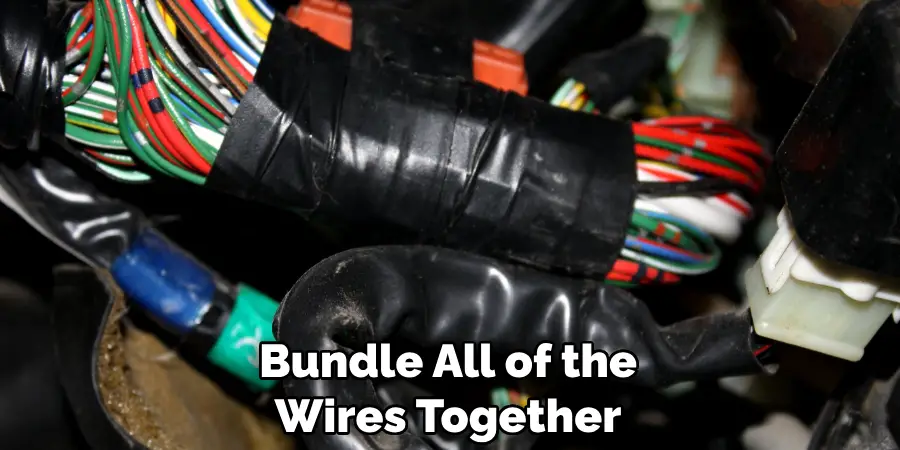
Step 5: Install Fixtures
Install any light fixtures or other appliances that need to be connected. Ensure all the wiring is properly secured and up to code before turning the power back on. Finally, turn the power back on and test everything to ensure it works correctly. If something isn’t working, troubleshoot it until the issue is resolved.
Following these steps will ensure that your basement wiring is up to code and safe to use. With a little bit of effort, you can keep your home’s wiring in top shape and avoid any potential disasters.
Safety Tips for How to Clean Up Basement Wiring
- Ensure the power is turned off at the circuit breaker before you start any work on basement wiring.
- Wear safety goggles and gloves when handling wires to protect your eyes and hands from potential hazards.
- Use a non-conductive ladder to reach higher places in order to avoid electrocution risks.
- Label all the wires you’re disconnecting with tape and a marker so that they can be properly reconnected later.
- Do not attempt to repair anything unless you are qualified to do the job – call an electrician if needed.
- Don’t leave any tools or materials near bare wires that could potentially cause a short.
- Make sure that all wires are properly secured and insulated to prevent future damage or shocks.
By following these safety tips, you can ensure your basement wiring is clean and safe for you and your family.
How Should You Label the Wires So I Can Easily Identify Them Later?
Labeling the wires is one of the most important steps when it comes to cleaning up basement wiring. This will make it much easier to identify each wire and its purpose in the future. To label wires, you’ll want to use a permanent marker or electrical tape and clearly mark each wire with its intended function before disconnecting it from your existing setup.
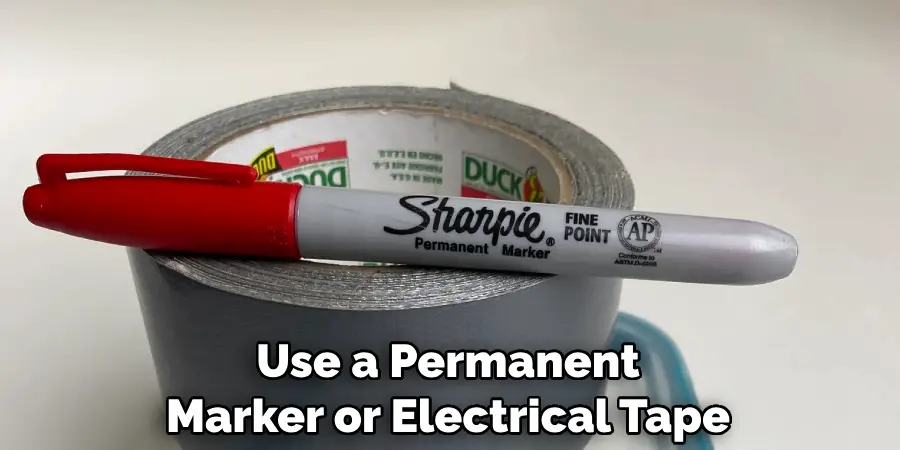
This will help you remember which wire goes where when you’re ready to reconnect them. You’ll also want to take photos of the existing setup before disconnecting anything so that it is easier to refer back to later on.
What Are the Best Ways to Organize and Store All of the Wires After You Have Cleaned Them?
After cleaning up your basement wiring, the next step is organizing and storing all the wires. To do this properly, having a plan in mind before you start is important. Here are some tips for how to best organize and store your basement wiring:
- Label each wire as you go – This will make it much easier to troubleshoot problems and find the right wires in the future.
- Use color-coded markers or labels – This will help you quickly identify different types of wiring and make it easier to put them back when needed in the future.
- Use plastic cable ties – These are essential tools for organizing and storing wiring. They will help keep the wires together and make them easier to move around the basement.
- Bundle smaller wires that carry a single signal – This is important because it will make troubleshooting much easier in the future.
- Keep wiring away from any sources of heat or water – This will help ensure that your wiring does not get damaged and will last for many years.
- Install proper cable management systems – There are a lot of options available to organize and store wires, such as cable racks, trunking, and conduit. These systems can make keeping your wiring neat and organized much easier.
Following these steps will ensure that you have a well-organized basement wiring system that is easy to troubleshoot and maintain.
Is It Necessary to Use a Professional Electrical Contractor for This Job, or Can You Do It Yourself?
When it comes to cleaning up basement wiring, the answer can depend on the extent of the necessary wiring repairs. If you have simple repairs, such as replacing a broken circuit breaker, then it is likely possible for you to handle these tasks yourself. However, hiring a professional electrical contractor with experience in this area is generally recommended if you are dealing with multiple circuits and more complex repairs.
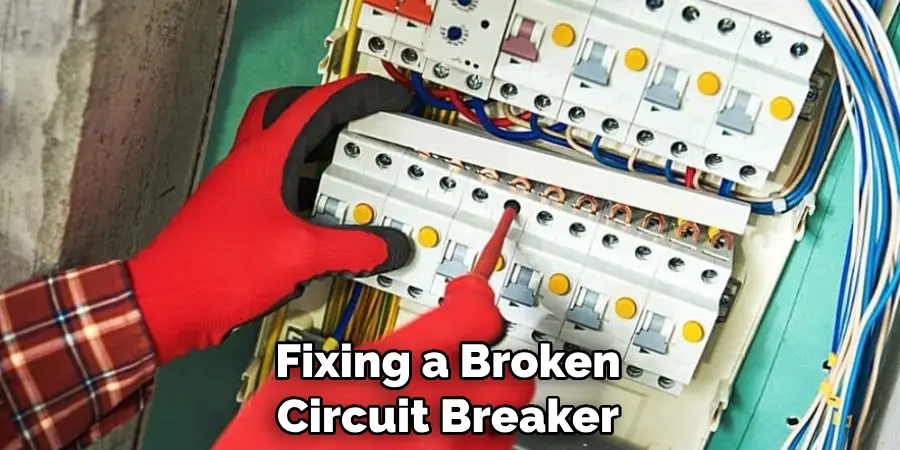
A professional electrician can offer the necessary expertise and knowledge to inspect your basement wiring, identify any problems or potential issues, and provide the best solution for repairing them. They are also better equipped to ensure that all work is completed safely and up to code. If you choose to tackle the project yourself, be sure that you understand all safety requirements and precautions before attempting any electrical repairs.
What Potential Problems Could Arise if You Don’t Clean Up Basement Wiring Correctly?
Basement wiring problems can become serious safety hazards if they’re not addressed properly. Some of the most common issues include:
- Overheating wires from a lack of air circulation due to improper bundling or too many cords in an area can cause a fire hazard.
- Poorly secured outlets and switches could cause electric shocks or short circuits.
- Loose connections and faulty wiring can create sparks or start a fire.
- Exposed wires pose a risk of electrocution if touched.
To ensure the safety of your home and family, it’s important to address any basement wiring issues you may have as soon as possible. Regular maintenance and cleaning up basement wiring can help prevent any of these serious issues from happening.
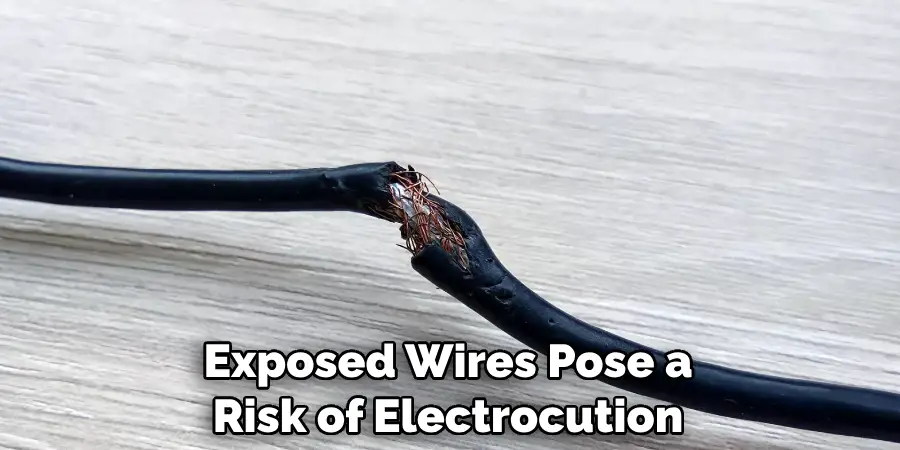
Conclusion
One of the main disadvantages of cleaning up basement wiring is that it can be dangerous. In some cases, you may be dealing with old wires and equipment that could pose a fire hazard if not handled properly. Also, improper cleanup can lead to increased electricity bills due to incorrect wiring or insulation issues.
In conclusion, cleaning up basement wiring is an important safety measure that should not be overlooked. By following the steps outlined in this blog, you can clear out any old or damaged wiring and create a safe environment for working on your electrical projects. Remember always to follow experts’ instructions and use the proper safety gear when dealing with electricity.
I hope this article has been beneficial for learning how to clean up basement wiring. Make Sure the precautionary measures are followed chronologically.

